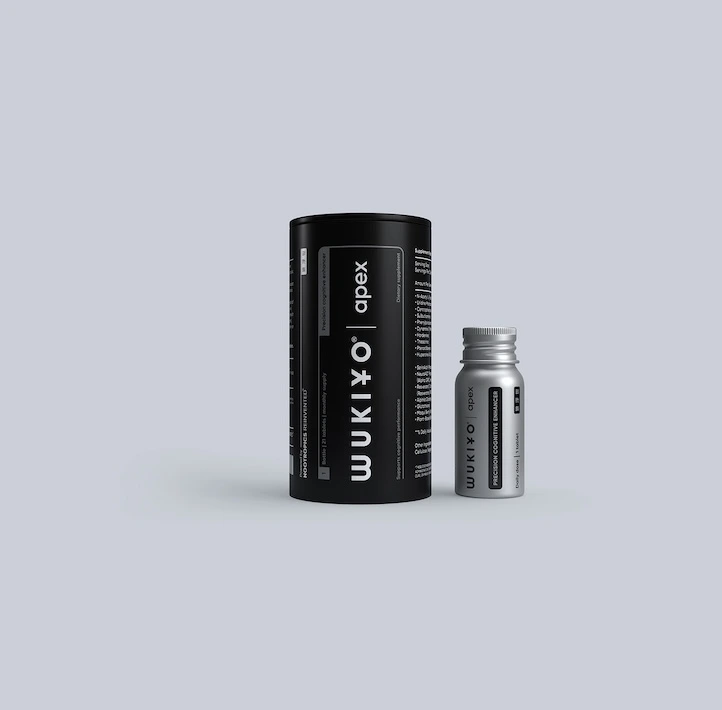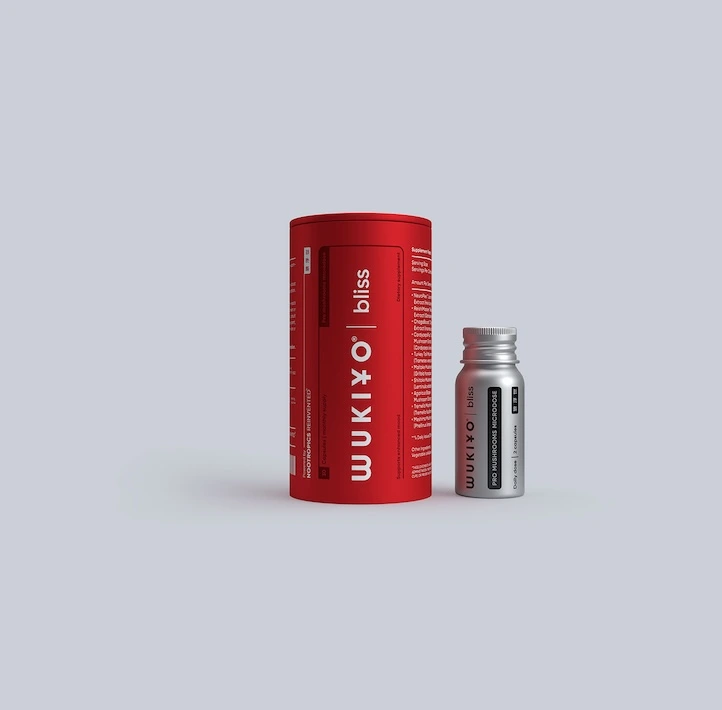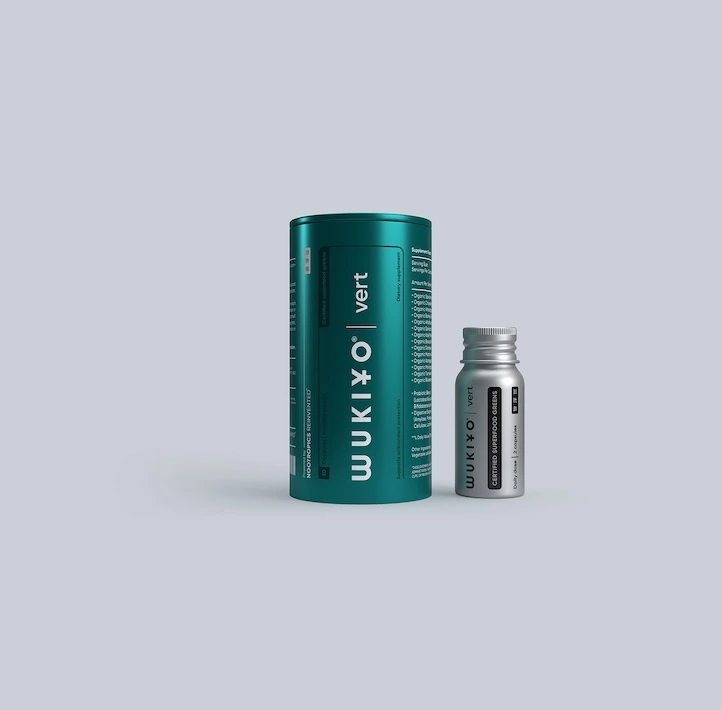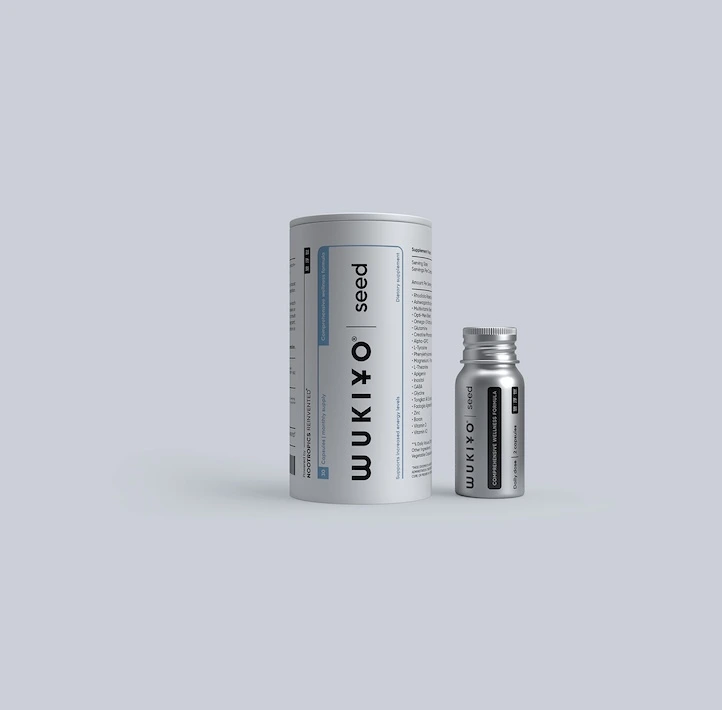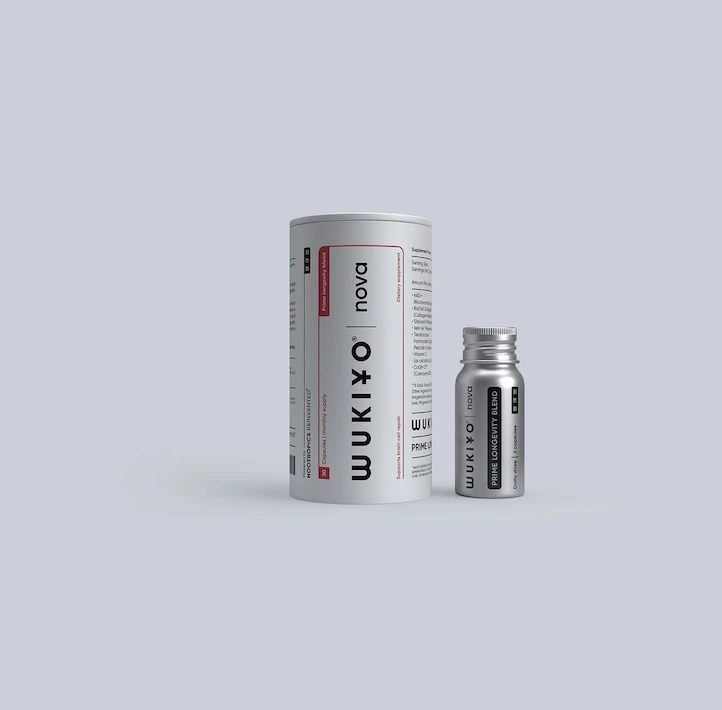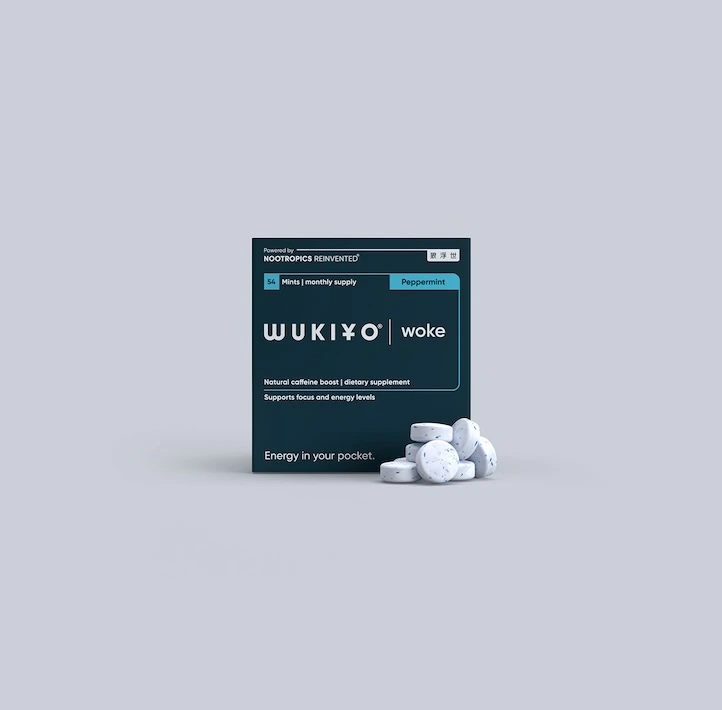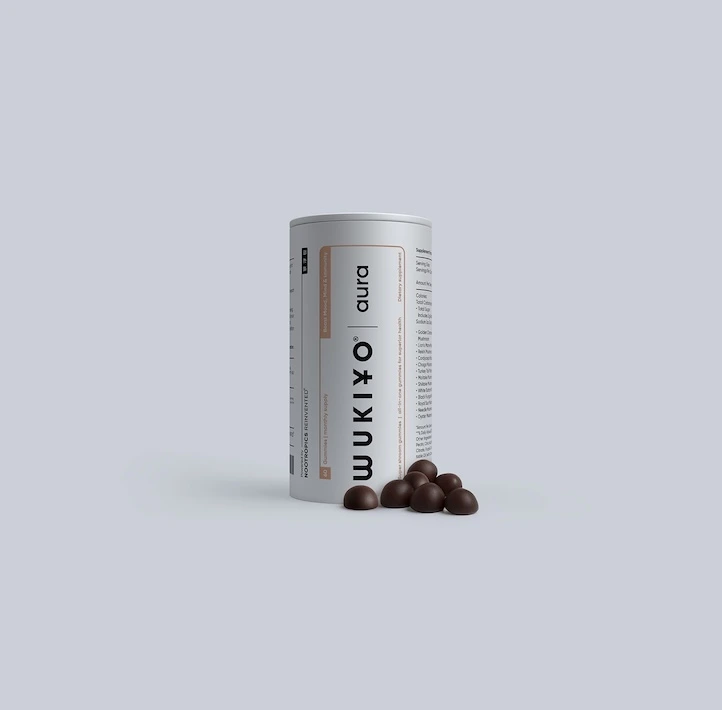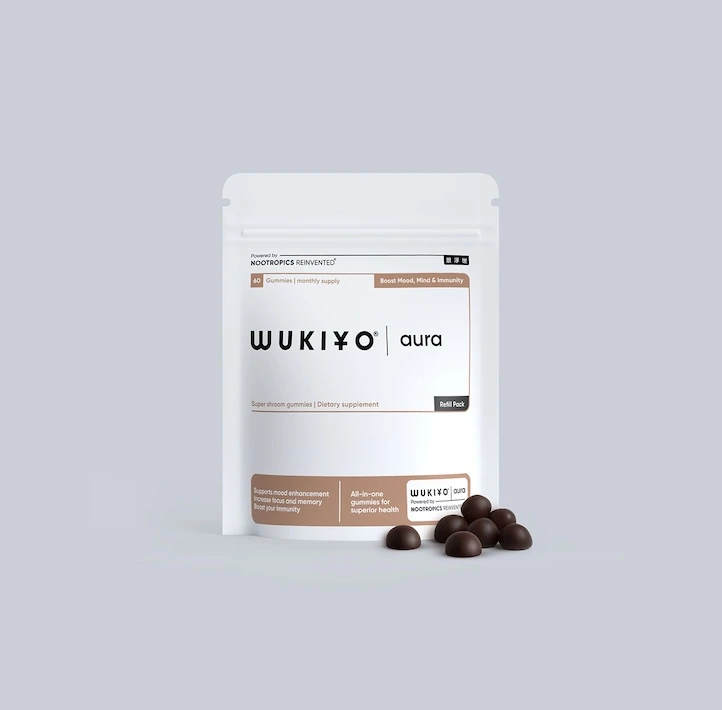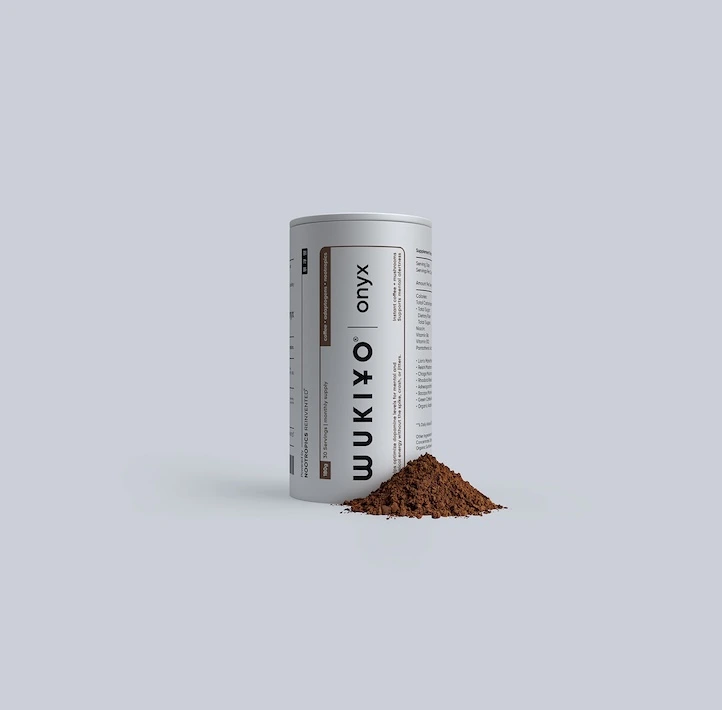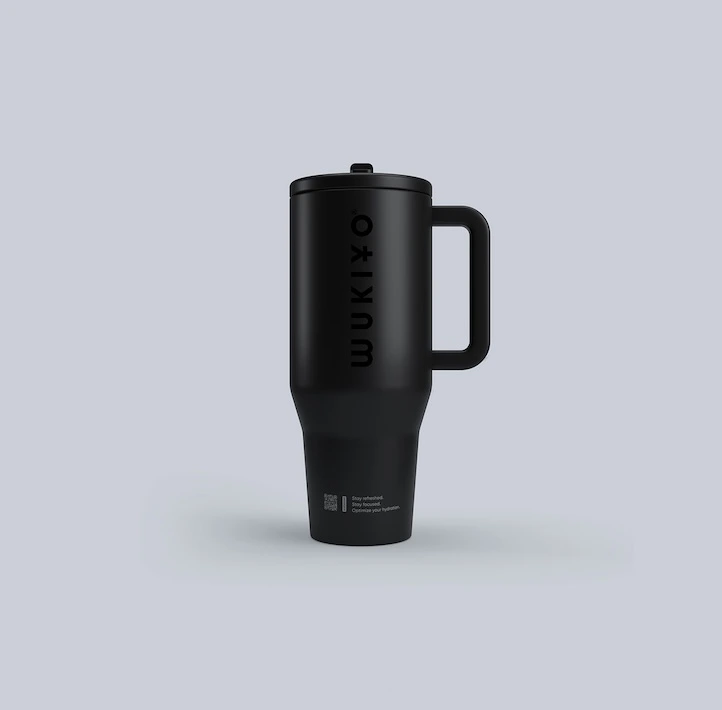The Revolutionary Power of Nootropics for Enhanced Brain Health and Performance

Table of contents
Illuminate Your Mind
The pursuit of enhanced brain performance is a common goal for many individuals.
The increasing desire for cognitive optimization can be attributed to the prevalence of mental health challenges in today’s society. In a world where conditions like anxiety and depression are commonplace, striving for optimal brain function has become a priority for countless people around the globe.
The brain plays a crucial role in governing the functions of the body, impacting various organs and systems.
As such, maintaining brain health is essential for overall well-being.
The quest to nurture and optimize the brain’s neurotransmitter activity is a growing trend, with individuals recognizing the profound influence it has on their mood, motivation, and engagement in daily activities.
Regardless of external factors such as environment, diet, or social support, the ability to produce adequate neurotransmitters is fundamental to experiencing feelings of happiness, motivation, and inspiration.
Scientifically, it is undeniable that neurotransmitter balance is a key determinant of mental wellness.
Therefore, it is essential for individuals to prioritize brain optimization from a holistic perspective to lead a fulfilling and enriched life.
This article delves into the impact of movement, nutritional status, and supplements on overall well-being and brain function. It also explores strategies to reduce neuroinflammation and highlights a selection of biohacking devices aimed at enhancing brain health.
Biohacking Movement
Optimizing brain function through exercise is a crucial component of a holistic wellness routine.
Research has unmistakably linked sedentary lifestyles to poor brain health and increased risk of neurodegenerative conditions. Despite accounting for only 2% of body weight, the brain demands a significant amount of energy, consuming approximately 20% of the body’s resting metabolic rate.
Cerebral blood flow (CBF) plays a vital role in delivering essential nutrients to the brain, with energy demand in the brain tightly regulating CBF. Maintaining optimal cerebral blood flow is essential for supporting brain function, as it ensures a steady supply of glucose and oxygen to meet the brain’s energy requirements.
Integrating light-intensity activities into daily routines can help break up sedentary behavior and contribute to glycemic control and overall brain health. Both light-intensity and high-intensity exercises have been shown to enhance brain performance and neurotransmitter levels significantly.
The practice of yoga, a mind-body physical activity, has been linked to a range of physiological, psychological, and cognitive health benefits. Studies have shown that regular yoga practice can lead to increased gray matter volume in brain regions associated with muscle control, sensory perception, memory, emotions, decision-making, and more.
Weight training is another form of exercise that offers notable benefits for brain performance. Resistance training has been found to elevate brain-derived neurotrophic factor (BDNF) levels, which play a key role in protecting and supporting the growth of neurons. The production of BDNF is stimulated by the presence of lactate, which is often experienced during intense resistance exercises.
Incorporating a combination of different exercise modalities, such as yoga and weight training, into your fitness regimen can have profound effects on brain health and cognitive function, ultimately contributing to overall well-being and vitality.
Exercise can be likened to a psychoactive drug, with dosing playing a critical role in optimizing its benefits.
Following weight training, there are documented increases in serum levels of β-endorphins and endocannabinoids, contributing to the mood-enhancing effects of exercise. However, engaging in excessively strenuous workouts can deplete neurotransmitters like dopamine, norepinephrine, and adrenaline, leading to feelings of exhaustion, reduced motivation, and diminished drive.
Moreover, weight training has been found to influence dopamine function by modulating dopamine receptors present in the body and brain. Substance use disorders often exhibit deficits in striatal D2/D3 dopamine receptor binding, which can contribute to issues such as anhedonia, negative affect, and drug cravings during abstinence from stimulant use. Through its effects on these receptor sites, weight training has the potential to positively influence dopamine function and mitigate these challenges.
The intricate interplay between exercise and neurotransmitter systems underscores the multifaceted ways in which physical activity can enhance brain health and overall well-being. By understanding and optimizing the dosing of exercise, individuals can harness its psychoactive effects to support mental health and cognitive function.
Enhancing Your Nutrient Levels for Optimal Health
Each nutrient, vitamin, and mineral in our diet plays a crucial role in supporting optimal brain function. Deficiencies in any of these essential components can compromise cognitive performance and overall mental well-being.
One fundamental nutrient to address for brain health is iron deficiency, as it profoundly impacts mood and cognitive abilities.
Iron serves as a co-factor in several biochemical reactions that are vital for the production of neurotransmitters linked to mood regulation. In individuals with iron deficiency, the synthesis of essential neurotransmitters such as dopamine, norepinephrine, and serotonin may be impaired, leading to feelings of fatigue, cognitive impairment, and reduced work performance.
Fortunately, addressing iron deficiency through supplementation has been shown to reverse these deficits in adults, restoring cognitive and physical function back to optimal levels.
In addition to iron, vitamin E is another crucial nutrient with the potential to enhance brain function. This vitamin has been found to inhibit NOGO-A, a protein that regulates brain plasticity and memory retention. Studies in mice have shown that inhibiting NOGO-A can lead to increased plasticity in the adult brain, improved cognitive function, and accelerated recovery from injuries. These findings highlight the important role that vitamin E can play in maintaining and optimizing brain health.
Furthermore, fish oil supplementation, specifically rich in DHA (docosahexaenoic acid), is a well-known dietary intervention for supporting cognitive function and overall brain health. DHA, an omega-3 fatty acid found in high concentrations in fish oil, is crucial for proper brain development, synaptic function, and neuronal communication. Including fish oil in your diet can help meet the brain’s DHA requirements, supporting cognitive performance, memory, and overall brain function.
DHA (docosahexaenoic acid), an essential omega-3 fatty acid found in fish oil, plays a critical role in supporting brain function and cognitive performance. Research has highlighted various key areas in which DHA supplementation can benefit brain health:
1. Amelioration of Cognitive Decline in the Elderly: DHA has been shown to support cognitive function in aging individuals, potentially mitigating age-related cognitive decline and preserving mental acuity in the elderly.
2. Treatment for Mood Disorders: DHA supplementation has shown promise in managing mood disorders, with studies suggesting a potential role in alleviating symptoms of depression and anxiety.
3. Improvement of Cognition in Traumatic Brain Injury: Research in rodent models indicates that DHA supplementation may enhance cognition and support recovery in cases of traumatic brain injury.
4. Amelioration of Cognitive Decay in Alzheimer’s Disease: DHA has demonstrated neuroprotective effects in mouse models of Alzheimer’s disease, suggesting a potential role in slowing cognitive decline and preserving brain function in individuals with this condition.
The mechanisms through which DHA supports cognitive abilities are multifaceted, including facilitation of synaptic plasticity, enhancement of synaptic membrane fluidity, stimulation of glucose utilization and mitochondrial function, and reduction of oxidative stress. By incorporating DHA-rich foods or supplements into your diet, you can optimize your DHA status and support optimal brain function and cognitive performance.
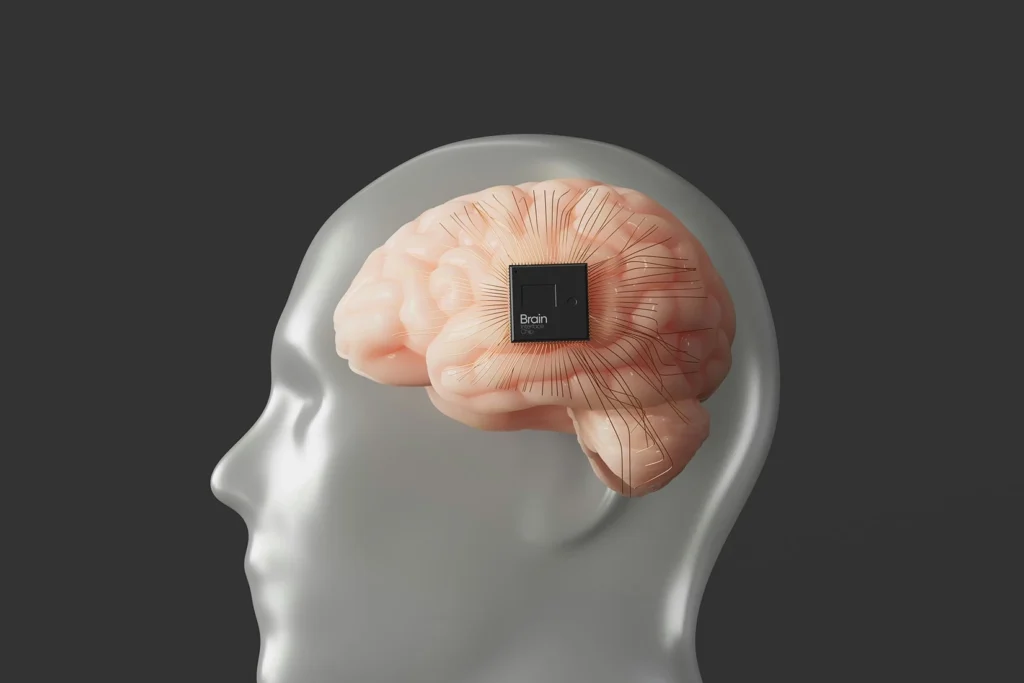
Enhance Your Cognitive Performance with WUKIYO® Advanced Supplements
When focusing on peak brain performance, correcting nutrient deficiencies and laying a strong foundation is crucial.
In addition to addressing deficiencies, individuals may explore advanced supplementation options to enhance focus, alertness, and cognitive function.
One such supplement to consider is N-Acetyl L-Tyrosine (NALT), a powerful substance that supports dopamine production in the brain. Dopamine is a neurotransmitter associated with motivation, focus, and mood regulation. By supplementing with NALT, individuals can potentially boost dopamine levels and enhance cognitive function. However, it is essential to be mindful of individual responses, as some individuals may experience increased anxiety or edginess due to elevated norepinephrine levels.
Another beneficial brain supplement to explore is L-Theanine, known for its ability to modulate brain waves and promote relaxation. L-Theanine influences alpha brain waves, which are linked to a state of calm and focus. This supplement acts on various neurotransmitter systems, including dopamine, serotonin, GABA, and glutamate, promoting cognitive performance, mood enhancement, and overall brain health. L-Theanine also supports neuroplasticity and neuroprotection by impacting NGF and BDNF levels.
By incorporating advanced supplements like NALT and L-Theanine into a comprehensive brain health regimen, individuals can potentially optimize cognitive function, enhance focus, and support overall brain performance. It is advisable to consult with a healthcare provider or a qualified professional before introducing new supplements to ensure safety and effectiveness.
Achieve peak brain performance with WUKIYO®’s proprietary formulas, WUKIYO | esse and WUKIYO | apex.
Address all facets of brain health and function with our advanced supplements that have been specifically designed to optimize cognitive performance and enhance focus.

Improving Neuroinflammation through Biohacking
Addressing neuroinflammation is crucial for maintaining optimal brain health and function. Neuroinflammation, which refers to inflammatory responses within the brain and spinal cord, can have significant impacts on overall well-being. Central to the discussion of neuroinflammation are microglia, innate immune cells of the central nervous system that play critical roles in mediating inflammatory responses.
Supplements that can help suppress microglial response and inflammation are essential for combating neuroinflammation.
Curcumin is a prime example of a substance known for its anti-inflammatory properties. Studies have shown that curcumin can inhibit neuroinflammation by suppressing pathways such as NF-κB and MAPK signaling in activated microglial cells.
This suggests that curcumin may be a valuable treatment for neuroinflammation-related neurodegenerative disorders.
In addition to curcumin, other natural compounds and supplements may also have anti-inflammatory effects and support brain health by reducing neuroinflammation.
By targeting neuroinflammation and its detrimental consequences, individuals can potentially protect against tissue damage, cognitive decline, and other neurological issues associated with chronic inflammation in the brain.
It is essential to consult with a healthcare provider or a qualified professional before incorporating any new supplements or strategies to address neuroinflammation, to ensure safety and effectiveness in managing brain health.
Cordyceps is a versatile natural nootropic that has been found to have anti-inflammatory properties and can help reduce neuroinflammation. In response to brain injury or immune stimuli, microglial cells may become overactivated, leading to increased inflammation and potential harm to neurons. Cordycepin, an active component found in Cordyceps, has been researched for its anti-inflammatory effects and protective properties against neural growth and development impairments caused by microglial over-activation.
Studies have shown that cordycepin can attenuate microglial activation induced by stimuli such as lipopolysaccharide (LPS), leading to a reduction in the release of pro-inflammatory cytokines and the down-regulation of inflammatory markers. Cordycepin has also been observed to inhibit the activation of the NF-κB pathway, contributing to its anti-inflammatory effects.
It is important to note that while neuroinflammation is typically associated with negative outcomes, there are instances, such as in CNS injury, where a balance of inflammatory and repair processes can influence functional recovery. In these cases, a regulated inflammatory response may be part of the body’s natural healing mechanisms.
Cordyceps offers a natural and potentially effective way to modulate neuroinflammation and support brain health. As with any supplement, it is advisable to consult with a healthcare provider before incorporating cordyceps or any other new substance into your routine, especially if you have existing health conditions or are taking medications.
Enhance your cognitive and physical performance with our cutting-edge WUKIYO® range, carefully curated to boost your mental acuity, focus, and overall well-being.
Our products are designed to make a genuine impact, providing noticeable improvements in your daily life.
Experience the difference with WUKIYO® where every detail is tailored to optimize your mind and body for peak performance.


